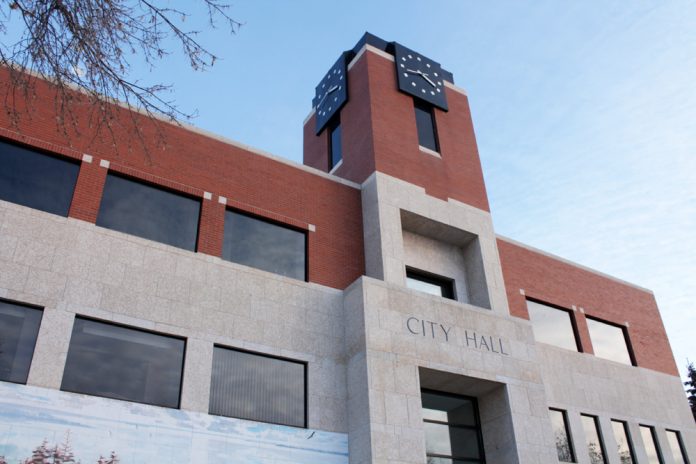The City of Prince Albert is looking at new ways to help residents fill out the national census this year, with the goal of reducing what council calls a huge gap between the City’s census population, and its actual population.
City manager Jim Toye told council they’ll have to get creative this year, since public health measures make traditional methods like block meetings and door-to-door canvassing difficult if not impossible. However, Toye said they’re committed to getting an accurate count in 2021, which could net Prince Albert an extra $2-million per year in federal and provincial grant money.
Statistics Canada recorded 35,926 people living in Prince Albert back in 2016. However, Toye said the City’s E-Health data for that same year shows 45,568 people in the City. That’s an increase of 9,642.
“We don’t believe that’s the population we really have in the city,” Toye explained. “We’re missing a lot of people. We tried to convey that the last census, but those (efforts) weren’t working.”
Toye said they may enlist the aid of census operational field officer who helped with the census in 2011. Those efforts would be on a volunteer basis, but Toye emphasized that discussions were still in the very early stages.
Traditionally, the City has held outdoor events like barbeques to get residents to fill out the census. However, even then they had trouble convincing residents to say they lived in Prince Albert.
Toye said many residents only live in PA for several months instead of the whole year, which means they won’t always list PA as their home community.
“Those are difficult decisions they have to make, but it’s not up to us,” he told council on Monday. “We try to get the correct address so we can count them in, but we have to be very careful how we handle those situations.”
Prince Albert city councillors will receive a census presentation from a Statistics Canada representative on April 12. That presentation will outline how the organization plans to accurately survey the City while still following public health guidelines.
Stats Can officials say roughly 80 per cent of all Canadians filled out their census on the internet in 2016, and they expect an even higher number in 2021. However, they acknowledge there will still be some who request a paper ballot.
“We’re in touch with a lot of stakeholders out there who are helping us on the field,” said Laurent Martel, the director of Statistics Canada’s Centre for Demography. “We know Stats Can has regional offices throughout the country, so those offices are working very hard already to make sure we are talking to the right people, to foster the interest in this census.”
Martel said they plan to partner with local administrators and managers in seniors homes and long-term care facilities to help improve the response rate. He added that door-to-door canvassing was completely out of the question.
“It would be unrealistic for Stats Can to claim that we can perform live interviews with people,” he explained. “I think that would not be responsible, so we have put into place alternate measures.”
Several city councillors took Stats Canada to task for how they record census data during a discussion at City Hall on Monday. They said the organization needs to take another look at its methodology because it puts communities with a large transient population at a disadvantage.
“It’s an absolutely necessary tool, but they need to adapt to City’s such as ours,” Coun. Blake Edwards said. “I hope that we’re working with the federal government to wake up, because this is hurting our city.”
“Stats Canada needs to look at these numbers and maybe change how they’re doing things a little bit,” Coun. Dennis Ogrodnick added. “It’s frustrating that this count follows us for at least five years and as we know, we are a lot more than 35,000 or 36,000 people in Prince Albert.”
City administrators estimate that an increase of more than 2,000 residents on the census could generate an extra $403,320 annually for the City. A lower census number would result in a decrease in government funding.
Martel said Prince Albert isn’t the only municipality with concerns about census date, and Stats Can is well aware of those concerns. He said they’re always looking at ways to make the census more accurate, but defended the 2016 survey as one of the most accurate in the world.
“The census is very accurate,” he said. “Some people are going to convey the message that the census does not provide accurate counts. That’s not true actually. The census is providing, actually, a very, very accurate count.”
Martel said they always receive questions about what demographers often call “shadow populations,” which are defined as workers who live in a city for a given period of time, but maybe not the whole year. He said their first priority is to make sure those residents aren’t counted twice, so they ask Canadians for their “usual place of residence” instead of where they’re currently living.
However, he also said Stats Canada was attempting to find a balance that accurately reflected the populations in communities like Prince Albert.
“We are very aware of all this, but it’s a challenging question,” Martel explained. “Stats Can works on this as we speak. I’m leading some projects to try and find out how we could do that, but there’s many, many questions that come to our mind.”
Census Day is May 11, 2021.
— with files from Peter Lozinski


